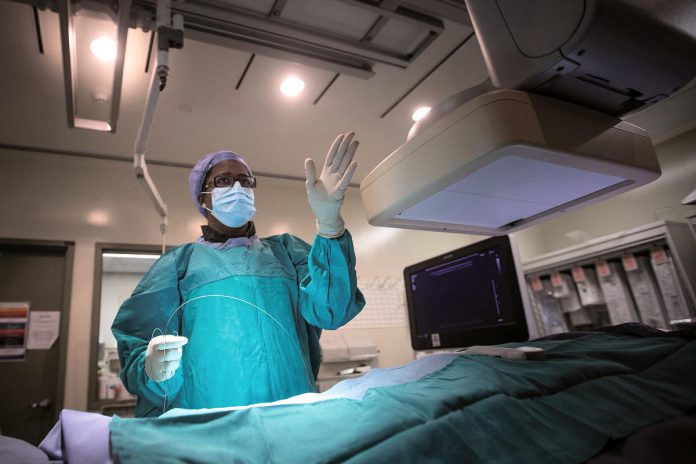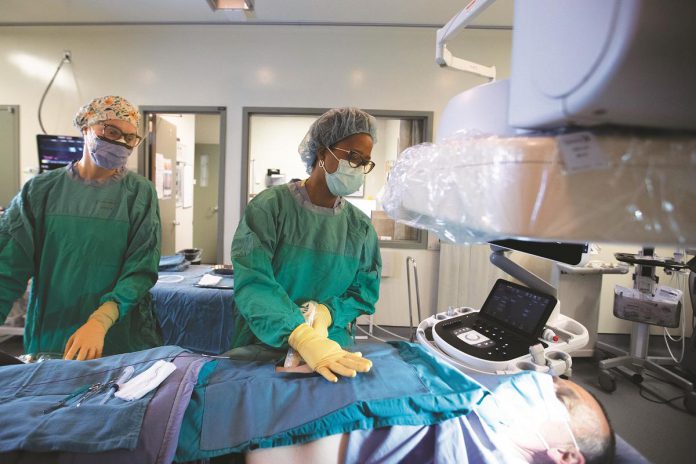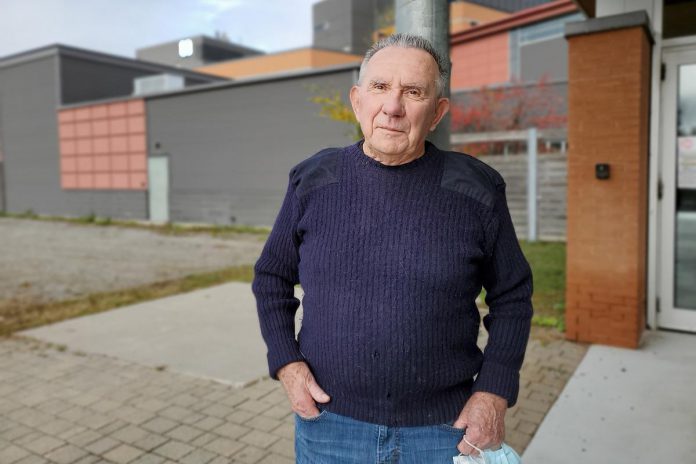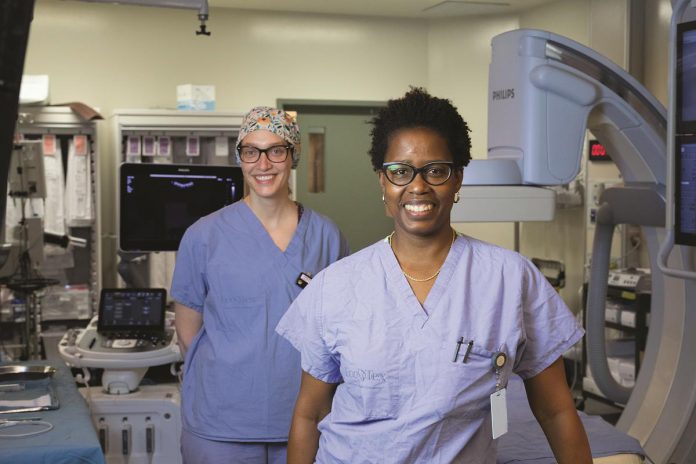
Interventional radiologist Dr. Kebby King has been providing minimally invasive care to patients in the interventional radiology suites at Peterborough Regional Health Centre (PRHC) for 14 years.
During that time, she’s seen a lot of innovation in her field — making interventional radiology a broad specialty that can be used to diagnose and treat patients with a variety of medical conditions.
One area that has shown a lot of innovation in the application of interventional radiology is cancer care. This sub-specialty can allow patients with a variety of cancers and cancer-related disease more time to live their lives. It can be used to treat some types of pancreatic, kidney and liver tumours, and cancer spread to the liver from a variety of tumours.

“Interventional radiology has revolutionized cancer treatment,” says Dr. King.
That’s because traditional cancer care involves administering chemotherapy medication to the entire body. For PRHC cancer patients who are candidates for interventional radiology, Dr. King and her colleagues perform very targeted treatments, using catheters and wires guided through tiny incisions in the skin and blood vessels, to focus precisely on the cancer.
“We’re able to specifically target the cancer,” explains Dr. King. “Either by delivering a higher dose of drugs to the target or by performing ablation or microwave therapy to kill the tumour directly.”
“We’re bombarding the cancer with all the good stuff to try to stem its spread and growth,” she says. “And because it’s so targeted, it has fewer side effects for the patient, and it can be done on an outpatient basis.”
Performed without the large incisions and associated risks of open surgery, it also means less pain and recovery time for patients.

Dr. King performed the first interventional radiology-radiofrequency ablation cancer treatment at PRHC two years ago. Cobourg resident Stuart Morley was more than 80 years old then and major surgery wasn’t the best option to treat his small kidney tumour. But he was a candidate for interventional radiology and became the first-ever patient at PRHC to receive this life-changing cancer treatment.
“It was amazing,” he says of the procedure where Dr. King put a metal probe through a small cut in his skin and, using a CT to guide her, found the tumour and dissolved it with radio waves. “I felt no pain and I was able to go home later that afternoon. Now I’m back taking photos and looking forward to travelling the world again.”
“Every year we see more and more people who benefit from minimally invasive cancer treatment,” says Dr. King. She recalls a patient named Neil with a mass on his liver who was referred to her when no other treatment was an option. His heart wasn’t strong enough for surgery and it wasn’t safe for him to have chemotherapy or radiation either.
“When every other doctor had to say no, I could say yes,” Dr. King says. “Neil and his wife came to meet with me. You can imagine how scared they were. But I knew I could help him. It made me so proud to be able to give them hope.”
Dr. King made a tiny incision in Neil’s skin and used imaging technology to help guide a metal probe through the liver to reach the tumour. Then she used interventional radiology-radiofrequency ablation to target the cancer cells. Similar to Stuart’s procedure, Neil’s treatment was quick, with very little pain and a short recovery.
“Stuart and Neil are just two examples of how interventional radiology has revolutionized cancer care,” says Dr. King. “We can offer much more precise treatments to target the exact location of the cancer, with less risk for vulnerable patients. I’m glad to be able to support the wide spectrum of cancer care at our hospital. It’s an amazing area to work in, touching so many different types of patients, not only saving lives but making life a little better.”
VIDEO: Interventional Radiology is helping to revolutionize cancer care at PRHC
It’s remarkable how many life-threatening health conditions can be diagnosed and treated with this innovative specialty. It can be used to biopsy or treat tumours like Stuart’s and Neil’s, put in ports for chemotherapy, or stop bleeding, in as little as an hour. It’s used to treat patients from every department of the hospital, including Emergency Department patients needing urgent care.
Dr. King and her colleagues already perform 6,000 interventional radiology procedures each year at PRHC, and the need for this kind of care is only growing in our region. PRHC’s interventional radiology suites are 14 years old, however, and too small to fit new, advanced technology and the staff required to use it.
A $6 million investment in state-of-the-art equipment not funded by the government, upgraded suites, and an expanded recovery room is essential to meeting the need — so Dr. King and her colleagues can treat more patients with more urgent and chronic conditions, close to home. Your donations now will help shape the future of interventional radiology at PRHC.

“Many of my patients have told me how concerned they are, with all the recent news about the challenges facing healthcare right now,” says Dr. King. “It can feel uncertain or scary. But I also hear from people who want to know how they can help make it better. That gives me hope, too.”
Not only this holiday season, but all year long, donors and grateful patients can help ensure PRHC’s frontline workers have the tools they need to provide expert, compassionate care, and receive some hope and good cheer. Tribute donations can include a message of thanks or best wishes to a hospital department or individual physician, nurse or staff member when made online or by phone.
To donate, find out more about interventional radiology, or share a message of hope or thanks with a PRHC team member, please visit prhcfoundation.ca or call 705-876-5000.
Images property of PRHC Foundation. Intended for promotional purposes only.
This branded editorial was published in partnership with the PRHC Foundation. If your business or organization is interested in a branded editorial, contact us.


























